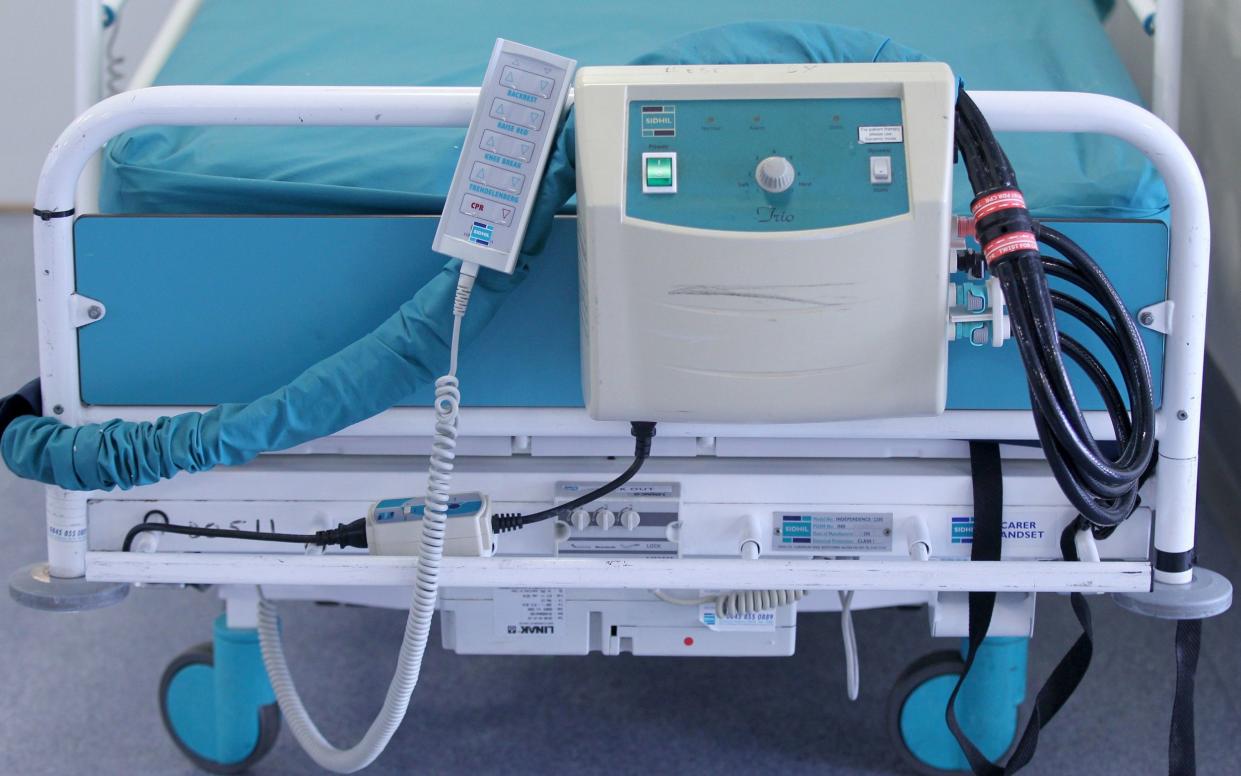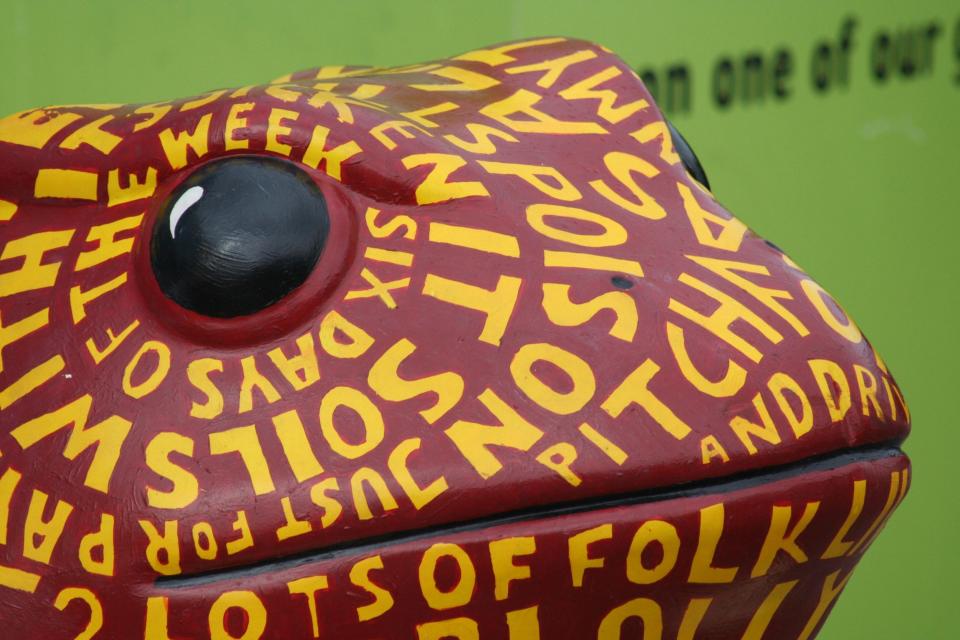Letters: The plight of patients trapped in hospital despite being fit to leave

SIR – Stella Currie (Letters, March 5) is not alone in her experience of patients occupying hospital beds for unnecessarily long periods.
A few months ago, following a visit to A&E, I was kept in overnight. During the doctor’s round in the morning, I was told that this really hadn’t been necessary, and I could leave as soon as I had received my discharge form and medication.
The hours passed and the nurses kept commenting that I was still there. At 5pm a diligent nurse said she would find a sister. Five minutes later the sister came running with my form and medication, and apologised profusely. At last I was able to leave.
Our senior medical staff should not be dashing around hospitals looking for a printer. During that day I could see what was going wrong. What are the managers doing?
Hon Ian MacGregor
London N2
SIR – Several years ago I was shot in the leg while at work and subsequently spent time in hospital awaiting surgery. In the end this couldn’t happen because of the position of the bullet, which remains in my leg.
I was discharged but had to wait almost six hours for my prescription. Bearing in mind that the person in charge of the dispensary was my own mother, I despair at the thought of how long some people must have to wait when they are not related to the staff.
Often such delays are caused by adhering rigidly to the order in which requests come into the dispensary, rather than working according to clinical need.
Andrew Pearce
London SE3
SIR – There is a solution to the problem outlined by Stella Currie. An article in Hospital Times, “How Pharmacy can reduce discharge delays”, provides a very good example from North Tees and Hartlepool NHS Foundation Trust. The installation of automated Omnicell medication dispensing cabinets, containing pre-labelled drug packs stored securely at ward level, reduced the ratio of “delays in transfer of care” from 4:5 in 2016-17 to 1:3 by March 2019.
It is a shame that such good practice isn’t rolled out across the NHS, although I have been told that my local hospital is also adopting the Omnicell system.
Patricia Murphy
London SE24
SIR – With regard to NHS waste (Letters, March 5), my wife and I are contacted innumerable times to verify that we are going to attend a booked appointment. After the appointment, we are then asked how it went, and whether we could give it a score out of 10.
I often wonder what the NHS does with this information. Probably nothing.
Kevin Platt
Walsall, Staffordshire
Church reparations
SIR – How ridiculous that the Church of England is considering raising £1 billion for a fund to address its links to transatlantic slavery (report, March 5). The Church can’t pay clerics properly and parish churches are falling down or being sold off.
Charity starts at home.
J L Greenwood
London SW18
SIR – In its current mood, perhaps the Church will now consider reparations for the Reformation.
Clive Rosiek
Walgherton, Cheshire
Soft on stealing
SIR – I recently returned a printer to a well-known store. Customer services agreed to replace it. The assistant went to get the one left in stock, but came back empty-handed. “It’s just been stolen,” she said (Letters, March 5). “Never mind. I’ll order you another.”
No wonder prices have to go up.
P Russell-Grant
West Mersea, Essex
SIR – Any product that is easily resold becomes a target for theft. My son’s mountain bike was stolen while he was at Loughborough University.
He found it the next day on Facebook Marketplace and contacted the police, who asked him to confront the seller. I contacted the seller and the police, who refused to take action. The bicycle then disappeared from sale, allowing the culprit to continue stealing.
Mark Broad
Emsworth, Hampshire
AI in the workplace
SIR – The Big Four’s decision to ban candidates from using AI in job applications (report, March 3) can only be a short-term fix.
Those candidates expect – and will be expected – to use AI in the workplace. AI has the potential to level the application playing field for neurodiverse candidates and those from less privileged backgrounds.
We have to embrace candidate use of GenAI. But we also have to guide it. We must help candidates realise that a copy-and-paste answer from ChatGPT won’t cut it at work. And it definitely won’t cut it in the application process.
If ChatGPT can write a better application than most of us, the time has surely come to assess candidates for other skills instead.
Estelle McCartney
London SE5
Sound money
SIR – You report (February 28) that parents are to be charged £3 for exam certificates from the Associated Board of the Royal Schools of Music (ABRSM).
As my father died in 1987 and my mother in 2012, I paid for my own ABRSM Grade 3 cornet exam and certificate last year. The certificate takes pride of place inside my “retired music” folder on a bookshelf in my bedroom. You’re never too old to learn.
William T Nuttall
Rossendale, Lancashire
Cutting the mustard
SIR – Tim R F Wilson (Letters, March 5) feels that Colman’s mustard has lost some of its fire. If one happens to be in Dijon and a mustard lover, a trip to La Maison Maille is recommended.
Here you will find an almost endless selection of mustards. Colman’s was founded in 1814, La Maison Maille in 1747, so perhaps their mustards have had a little longer to mature.
Duncan Rayner
Sunningdale, Berkshire
Bravery of RNLI crews
SIR – The RNLI relies on volunteers to provide a world-class rescue service. Currently, the Government relies on the RNLI to recover illegal migrants crossing the Channel.
The RNLI hierarchy is mired in accusations that it is ageist, and has been criticised for the way it manages its loyal and brave volunteers (report, March 5).
Perhaps we can now see some formal recognition by the RNLI senior management, the Government and the Border Force for all these RNLI crews, who have no employment protection or financial reward and who give their skills and time at great cost to themselves.
Gavin Howard
Killyleagh, Co Down
SIR – I was very surprised to learn that RNLI crews in Wales were using Welsh on rescue operations (report, March 4). In my 44 years at sea in the Merchant Navy I only encountered one seafarer who understood the language.
All rescue operations at sea, no matter where you are in the world, must be conducted in English in order that both rescuers and those in peril can understand each other. English is the only working language universally understood by seafarers.
Peter J Newton
Chellaston, Derbyshire
Single-sex spaces
SIR – Suzanne Moore is quite correct to highlight the necessity of single-sex spaces (Features, March 5).
As a husband, father and grandfather, I would like to be assured that members of my family are able to access safe single-sex spaces in the community in the event of a medical or social need, without the risk of being preyed upon while in a vulnerable state.
Stuart Harrington
Burnham-on-Sea, Somerset
Unfit for a queen
SIR – Queen Victoria was notoriously greedy. When her doctor tried to put her on a diet, she dutifully ate his healthy choices in addition to her normal huge meals.
One of the few things she did not care for was jam. She would have regarded it as quite unsuitable as an adornment for the marble bust of her in Glasgow (report, March 4). She loved orange jelly. If the environmental protesters had chosen that favourite food, she might have been amused.
Lord Lexden (Con)
London SW1
How volunteers keep amphibians off the road

SIR – David Millar (Letters, March 2) is unsure how to respond to new signs in his area warning of frogs in the road.
The reality is that vast numbers of frogs, toads and newts are killed on our roads every February and March. They spend much of the year in woods, hedges and uncultivated areas, then in February begin migrating to ponds and lakes to breed and spawn.
Their daily migration starts at dusk and continues for several hours. In order to reach a suitable spawning site they often cross roads, and many are annihilated by vehicles. On one short stretch of a country lane a couple of weeks ago I counted 38 freshly squashed corpses.
Frog and toad patrols are manned by many hundreds of volunteers, who spend several hours each evening for six to eight weeks picking up amphibians from the tarmac and placing them on the verge in order to get them out of harm’s way.
Drivers ought simply to proceed very slowly. Usually this will result in a delay of less than a minute, but it may save the lives of dozens of increasingly endangered amphibians.
Stephen Paget-Brown
Sevenoaks, Kent
SIR – Here in Bath we do things properly and the road is closed so that toads and newts are able to cross.
Susan Whitehead
Bath, Somerset
What Chris Packham forgets about net zero
SIR – The presenter Chris Packham (report, March 4) argues that there was a failure to consult the public and key stakeholders before net-zero policies were abandoned.
Since when was the public ever consulted on the whole net-zero project in the first place?
It was quietly signed into law with little debate or consultation, and resulted in a variety of measures being introduced (including electric cars and heat pumps) that most people do not require – and, in any case, cannot afford.
Larry Oster
Southsea, Hampshire
SIR – With the construction time and costs of the Hinkley Point power station continuing to escalate (report, March 1), why are we even contemplating proceeding with another such plant at Sizewell?
Surely it is time for Rolls-Royce to get on with manufacturing small modular reactors. Once this programme is under way, the benefits from probable mass production would become apparent – and, if suitably sited, the waste heat could also be sold, significantly increasing the efficiency.
Ian Smethurst
Congleton, Cheshire

